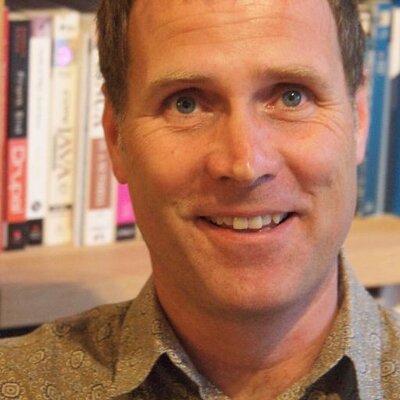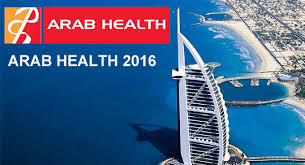 OpenMaxims, an electronic patient record (EPR) system developed in the United Kingdom (UK) and made available as open source software, is being adopted by three additional hospitals in the UK. The software solution is being implemented for the Blackpool Victoria Hospital, Clifton Hospital and Fleetwood Hospital, all three in England's northwest coast. The three hospitals form the Blackpool Teaching Hospitals NHS Foundation Trust. The Trust started implementing OpenMaxims in December.
OpenMaxims, an electronic patient record (EPR) system developed in the United Kingdom (UK) and made available as open source software, is being adopted by three additional hospitals in the UK. The software solution is being implemented for the Blackpool Victoria Hospital, Clifton Hospital and Fleetwood Hospital, all three in England's northwest coast. The three hospitals form the Blackpool Teaching Hospitals NHS Foundation Trust. The Trust started implementing OpenMaxims in December.
News
First Timer’s Guide to FOSS Conferences
 I’ve been going to FOSS (free and open source) conferences since 2006. My first open source conference was FreedomHEC in Seattle, a little 30-person conference for Linux users to protest Microsoft’s WinHEC. My next open source conference was OSCON, which had over a thousand attendees. They were both very different conferences, and as a college student, I really didn’t know what to expect. Going to your first open source conference can be intimidating, so I’ve complied ten tips for people who are new to the conference circuit...
I’ve been going to FOSS (free and open source) conferences since 2006. My first open source conference was FreedomHEC in Seattle, a little 30-person conference for Linux users to protest Microsoft’s WinHEC. My next open source conference was OSCON, which had over a thousand attendees. They were both very different conferences, and as a college student, I really didn’t know what to expect. Going to your first open source conference can be intimidating, so I’ve complied ten tips for people who are new to the conference circuit...
- Login to post comments
- News
Why I Fought for Open Source in the Air Force
 The AOC grew up out of a pick-up game of sorts between the users (Air Force personnel) and the vendors (commercial and government programs). The users simply bought what they wanted, and the vendors happily took their money and installed the systems. The result was a collection of standalone systems; each came installed with its own hardware and software, and there was very little sharing of resources between them. While the team made it work through sheer willpower, it was horribly inefficient, a maintenance nightmare, not user friendly, and agility was measured in decades. Our job was to take that mess and fix it...This was my first trial-by-fire experience that showed the true resistance within the Air Force and Department of Defense (DoD) to open source software...
The AOC grew up out of a pick-up game of sorts between the users (Air Force personnel) and the vendors (commercial and government programs). The users simply bought what they wanted, and the vendors happily took their money and installed the systems. The result was a collection of standalone systems; each came installed with its own hardware and software, and there was very little sharing of resources between them. While the team made it work through sheer willpower, it was horribly inefficient, a maintenance nightmare, not user friendly, and agility was measured in decades. Our job was to take that mess and fix it...This was my first trial-by-fire experience that showed the true resistance within the Air Force and Department of Defense (DoD) to open source software...
- Login to post comments
- News
How Industry Collaboration Shaped the Carequality Interoperability Framework
 Key to the success of the Carequality Interoperability Framework was the enthusiastic participation of healthcare IT industry leaders and organizations and their collaboration with Carequality. This work was carried out under the guidance and direction of the Sequoia Project staff, with input from the Carequality Query Work Group. Carequality, a public-private collaborative initiative of The Sequoia Project, creates a standardized, national-level interoperability framework to link all data sharing networks. The Carequality Interoperability Framework is a collection of documents that are used to operationalize data sharing that include...
Key to the success of the Carequality Interoperability Framework was the enthusiastic participation of healthcare IT industry leaders and organizations and their collaboration with Carequality. This work was carried out under the guidance and direction of the Sequoia Project staff, with input from the Carequality Query Work Group. Carequality, a public-private collaborative initiative of The Sequoia Project, creates a standardized, national-level interoperability framework to link all data sharing networks. The Carequality Interoperability Framework is a collection of documents that are used to operationalize data sharing that include...
- Login to post comments
- News
MedicaSoft to Demonstrate the Capabilities of Advanced Web Technologies for EHRs at HIMSS16
 Our team prides itself on using cutting edge software technologies that maximize everything from interoperability to speed, integration, reliability, and usability. We use Angular.js to build our user Interface. Angular.js is a technology that was invented at Google and used by Google for its own products. We use Node.js for the serverside logic. Node.js allows us to provide incredibly fast transactions and again, use technology from this decade, unlike other health IT solutions. Node.js is growing at an exponential rate in industry – well, other industries, not healthcare.
Our team prides itself on using cutting edge software technologies that maximize everything from interoperability to speed, integration, reliability, and usability. We use Angular.js to build our user Interface. Angular.js is a technology that was invented at Google and used by Google for its own products. We use Node.js for the serverside logic. Node.js allows us to provide incredibly fast transactions and again, use technology from this decade, unlike other health IT solutions. Node.js is growing at an exponential rate in industry – well, other industries, not healthcare.
- Login to post comments
- News
Participants at Arab Health 2016 Show the Way for Health IT
 Arab Health is the largest healthcare exhibition and medical congress in the Middle East, and arguably the second largest one in the world. It took place from January 25 to 28 at the Dubai International Convention & Exhibition Centre in Dubai, United Arab Emirates (UAE). This conference attracted about 150,000 visitors from a region half a billion people call home: this covers Pakistan, Afghanistan, Iran, Iraq, Saudi Arabia, Turkey, Egypt, Morocco and a lot of other countries. Why all these people attend Arab Health? Let me give you a couple of examples... Read More »
Arab Health is the largest healthcare exhibition and medical congress in the Middle East, and arguably the second largest one in the world. It took place from January 25 to 28 at the Dubai International Convention & Exhibition Centre in Dubai, United Arab Emirates (UAE). This conference attracted about 150,000 visitors from a region half a billion people call home: this covers Pakistan, Afghanistan, Iran, Iraq, Saudi Arabia, Turkey, Egypt, Morocco and a lot of other countries. Why all these people attend Arab Health? Let me give you a couple of examples... Read More »
- Login to post comments
- News
Open Source App Takes on Ebola and Mental Health in Liberia
 Angie Nyakoon and Amanda Gbarmo Ndorbor are two outspoken and energetic women who oversee the Mental Health Unit at the Ministry of Health and Social Welfare (MOHSW) in Liberia. Together, they're applying a new open source app called mHero (that was first used to help them deal with the Ebola crisis) to the mental health issues that have arisen in the aftermath of the epidemic due to displacement and abandonment...mHero provides a trusted channel that facilitates two-way communication using SMS and interactive voice response for sending and receiving critical information to and from frontline health workers, in real time...
Angie Nyakoon and Amanda Gbarmo Ndorbor are two outspoken and energetic women who oversee the Mental Health Unit at the Ministry of Health and Social Welfare (MOHSW) in Liberia. Together, they're applying a new open source app called mHero (that was first used to help them deal with the Ebola crisis) to the mental health issues that have arisen in the aftermath of the epidemic due to displacement and abandonment...mHero provides a trusted channel that facilitates two-way communication using SMS and interactive voice response for sending and receiving critical information to and from frontline health workers, in real time...
- Login to post comments
- News
Iowa Is Voting on Healthcare Tonight
 Health care is no longer about us. Health care is about waste, fraud and abuse. Health care is about “bending the curve”. Health care is about global competitiveness of corporations. Health care is about carving up a $3 trillion opportunity. Health care is about private equity, mezzanine funding, return on investment, valuations and public offerings. Health care is about the economy, and the economy is no longer about us.
Health care is no longer about us. Health care is about waste, fraud and abuse. Health care is about “bending the curve”. Health care is about global competitiveness of corporations. Health care is about carving up a $3 trillion opportunity. Health care is about private equity, mezzanine funding, return on investment, valuations and public offerings. Health care is about the economy, and the economy is no longer about us.
- Login to post comments
- News
Open Access 2015: A Year Access Negotiators Edged Closer to the Tipping Point
 It’s the year many negotiators got seriously tough on double dipping – charging for both the ability to read (via subscriptions) and for publishing (author processing charges, or APCs). Last year it was France getting tough on the toughest negotiator: Elsevier. This year, the Netherlands took it right to the brink of cutting Elsevier loose. It was summed up by a January headline: “Dutch universities dig in for long fight over open access.” Coming into the new year, other nations were taking up positions about the future they want to see too...Here’s a month-by-month roundup of some of the major action...
It’s the year many negotiators got seriously tough on double dipping – charging for both the ability to read (via subscriptions) and for publishing (author processing charges, or APCs). Last year it was France getting tough on the toughest negotiator: Elsevier. This year, the Netherlands took it right to the brink of cutting Elsevier loose. It was summed up by a January headline: “Dutch universities dig in for long fight over open access.” Coming into the new year, other nations were taking up positions about the future they want to see too...Here’s a month-by-month roundup of some of the major action...
- Login to post comments
- News
The Postmodern EHR: What are the Enablers?
 Traditional monolithic EHR architectures focus on stability and standardization at the expense of agility. Along with innovation, cloud based deployment and integration of things, agility is the main differentiator when describing the requirements of application architecture for the Postmodern EHR. Achieving agility is impossible for the vast majority of healthcare applications today as they are an inseparable mix of code for user interface, decision logic, workflows and data definitions. New architectures promote agility and reuse by turning the applications inside out and layering the four types of programming into portals, rule engines, process engines and XML data. Let’s look at some examples, layer by layer:
Traditional monolithic EHR architectures focus on stability and standardization at the expense of agility. Along with innovation, cloud based deployment and integration of things, agility is the main differentiator when describing the requirements of application architecture for the Postmodern EHR. Achieving agility is impossible for the vast majority of healthcare applications today as they are an inseparable mix of code for user interface, decision logic, workflows and data definitions. New architectures promote agility and reuse by turning the applications inside out and layering the four types of programming into portals, rule engines, process engines and XML data. Let’s look at some examples, layer by layer:
- Login to post comments
- News
Three More Hospitals in the United Kingdom Adopt Open Source EPR (EHR)
- Login to post comments
- News